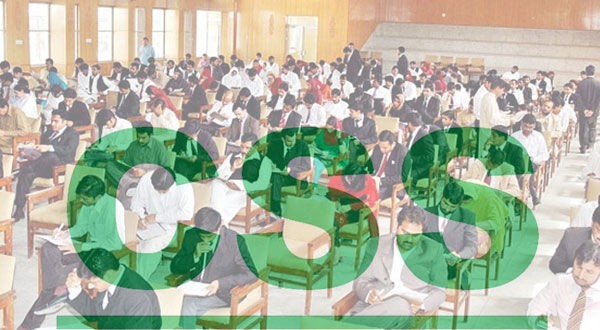Have you ever heard about the bureaucracy of a country? The most powerful government wing that acts like a spinal cord for the establishment. Every country has its own bureaucracy and in Pakistan, this elite authority is known as the Civil Superior Services (CSS).
Civil Services of Pakistan (CSP) is that authoritative part of the government where some specially chosen candidates spend their whole lives by utilising the power given to them just for the sake of the public of the country. These civil servants are leaders of the future of Pakistan and they are also very much the ones who get on to be the policy makers of the country.
The 12 departments (irrespective of priority and respect) of the CSP are:
1. Pakistan Customs Services (PCS)
2. Foreign Service of Pakistan (FSP)
3. Commerce & Trade Group (PCG)
4. Pakistan Administrative Service (PAS)
5. Inland Revenue Service of Pakistan (IRS)
6. Information Services of Pakistan (ISP)
7. Military Lands & Cantonment Group (MLCG)
8. Office Management and Secretariat Group (OMG)
9. Pakistan Audit and Accounts Service (PAAS)
10. Police Service of Pakistan (PSP)
11. Postal Group (PG)
12. Railways (Commercial & Transport) Group (RCTG)
Without these few departments, the Pakistani government and public system would go numb. So, clearly the civil servants handling and leading these departments have to be outstanding and brilliant as well as unique.
The eligibility for joining the elite service is to pass the Civil Superior Services (CSS) exams. Simple, no? Well, Ninety seven per cent of CSS aspirants who don’t get into the CSP don’t think so.

CSS is an extremely competitive exam that requires months of rigorous preparation with day and night to spend in the studies. It is taken by Federal Public Service Commission (FPSC) that is responsible for the production of the exam papers as well as the recruitment of the candidates. After you have passed the examinations, which only 2-3% of some 28,000 candidates pass per year, you have to qualify in a psychological and then in a medical test. The psychological and medical tests and sometimes even the written CSS exam aren’t as problematic as the final part of the exam; the interview, more likely known as the "viva-voce".
The viva-voce is the make-it or break-it of CSP qualifications. The four to five interviewers will test a candidate's mental capacities and see if he or she can handle situations under pressure. They will check the candidate’s leadership, management and administrative qualities also keeping in mind the communication skills and attitude of the candidate throughout the interview. Knowledge about Islam and Pakistan’s history, current affairs and foreign affairs is the key to success in the viva-voce.
But the interviewers are not as bad as reputed; they also provide candidates with the tension that if they don’t pass the interview, they’ll have to re-take the CSS exam next year or give up on their dream to become a bureaucrat. (Sarcasm-Intended)
To take the written exams, you have to be at least a graduate from one of the HEC recognised universities. You have three chances to take the exams until the age of 30. So as soon as you have your bachelor degree in your hands, you’re good to go. Moreover, Rs2,500 or Rs,3000 is also to be payed to FPSC for the exam.
If you think that you won’t ever be able to pass the CSS exam then fret not. There are many public libraries that provide with the best CSS preparation material for very low membership costs. The most famous one in this regard is the Quaid-e-Azam library located in multiple cities like Lahore and Quetta.

This library has been the reason for many CSS enthusiasts getting into the CSP. Also, unless you know how to start with the basics of the preparation, you can always join a CSS preparation academy where top Civil Service officials take out their time to teach you themselves.
However, the best way to prepare for the CSS is perhaps by yourself. Many bureaucrats who once passed this exam with good merit have advised their juniors to spend their concentration for 6-8 hours per day by secluding themselves in a calm and academic environment; that of a library.
Each and every detail of the CSS examinations, its benefits and its perks, has been passed on by senior CSS officials to junior CSS enthusiasts in this forum, which has been used by many civil servants for the past decade or so and still continues to be a useful source of detail for anyone who wants to know anything about the exams and the postings/training after those exams.
Civil Service exam may seem like a hurdle and many people back off from it just because they think they can never pass it and it's just a waste of time. However, that is far from the truth. Hardworking, deserving candidates, and those who genuinely want to serve their people get into the service easily.
Furthermore, when you pass the exams, you will have benefits and protocols like no one else? Who knows you could be the future secretary to the prime minister.
You could also lead the transportation of containers in Gwadar for China Pakistan Economic Corridor (CPEC) or could serve as Pakistan's envoy to the United Nations.
Imagine the unlimited possibilities where you get respect, unmatched perks, privileges and protocol, earn reasonable salary and most of all, serve Pakistan.
So plan to take these exams and don’t miss the chance so that you can serve the people you care for. Who knows what the CSP has in bag for you in the future?






